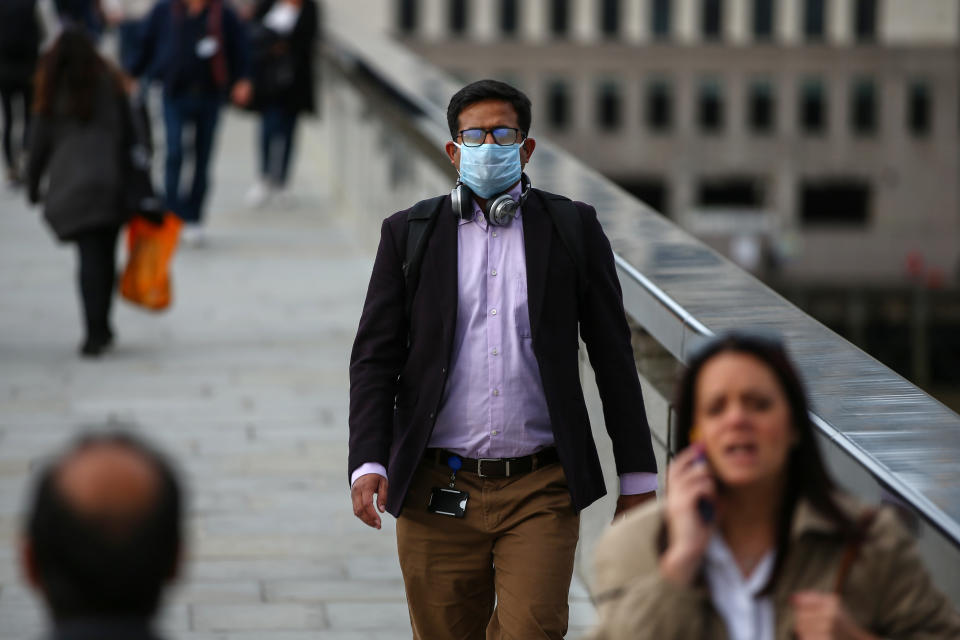'Short-term relief': UK business groups cautiously welcome furlough extension

Britain’s leading bosses have said the furlough scheme extension provides “short-term” relief, as they cautiously welcome the gesture announced on Saturday.
The new restrictions, announced in a press conference by prime minister Boris Johnson on Saturday, will see England locked down for four weeks from 5 November to 2 December in an effort to combat rapidly rising coronavirus infection rates.
Under the measures, pubs, cafes and restaurants will shut, except for takeaway and delivery services, from 5 November to 2 December. But, the restrictions do not include schools and colleges, which will be allowed to stay open.
Despite their reservation, they highlighted that its a key weapon in the fight against COVID-19, which would boosts confidence and mean employees are not asked to self-isolate without decent sick pay.
The furlough scheme, also known as the coronavirus Job Retention Scheme, has been extended for one month, as the UK economy braces for a second lockdown in England due to start on Thursday.
The extension means that the government will continue paying up to 80% for the wages of employees whose businesses were forced to close.
Speaking on the extension the director general of the British Chambers of Commerce, Marshall said that the furlough extension offers “short-term” relief to firms facing hardship through loss of demand or closure.
The scheme, which was designed to support businesses amid wide-reaching lockdowns, had been due to end on 31 October and be replaced by the Job Support Scheme (JSS) on 1 November.
The Treasury hasn’t given a precise end date to the scheme, but said it will run until December.
READ MORE: The furlough scheme extension and Job Support Scheme explained
Commenting on the lockdown, chief executive of Make UK, Stephen Phipson, said: “Given this could not have come at a worse time for jobs, Make UK welcomes the decision to extend the job retention scheme at 80% of salaries which has played such a key role so far in protecting as many jobs in our sector.
“Given this crisis has some time to run government is going to have to continue to adopt a flexible and fast paced approach to policy for all sectors of the economy, not just those forced to close.”
The director general of the Confederation of British Industry was more positive on the extension, calling it “a vital step.” Dame Carolyn Fairbairn said that the gesture “will bring instant relief and protect jobs.”
Meanwhile, small businesses have warned that they are facing the “bleakest winter” they have ever seen and of a “second deep recession.”
Responding to the extension, the national chairman of the Federation of Small Businesses (FSB), Mike Cherry, said: “On the extension of the Coronavirus Job Retention Scheme (CJRS), there must be swift confirmation that the 80% of salaries for those furloughed will be publicly funded, and whether the employer will continue to cover the cost of employer National Insurance Contributions and auto enrolment pensions.”
“In addition, emergency measures are required to make it less expensive for those who can do to hire people,” he added.
From March to July, the government paid for 80% of furloughed workers wages, up to a cap of £2,500 ($3,300) a month. It also covered national insurance (NI) and pension contributions.
But, by October, the government had peeled back the scheme, meaning that employers’ contributions toward employee wages upped to 20%, with the government covering 60%.
That has now been reversed and the government will stump 80% of workers’s wages till December.
Watch: Why job losses have risen despite the economy reopening

 Yahoo Finance
Yahoo Finance 